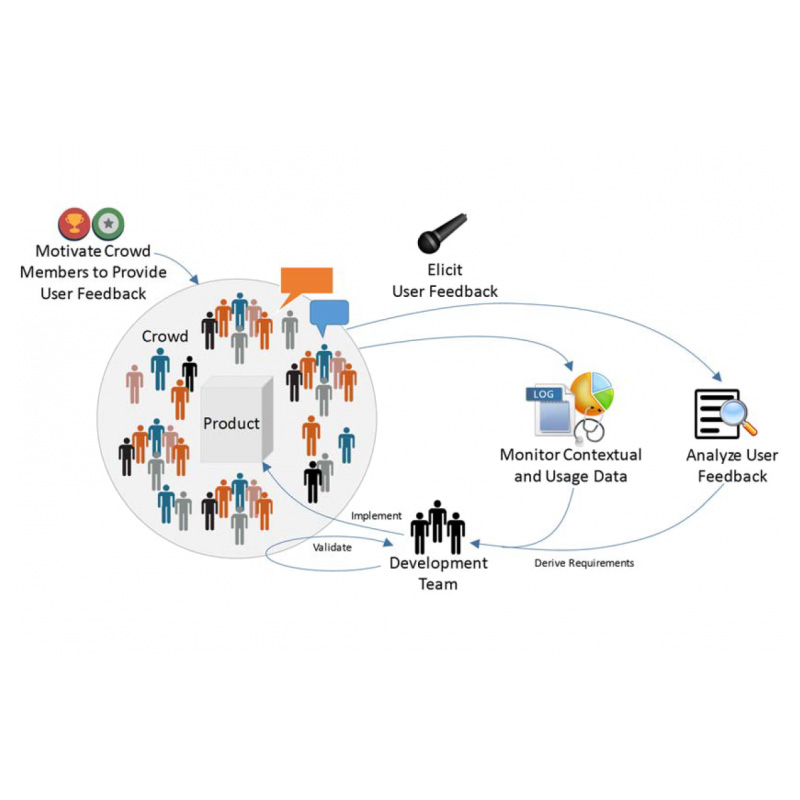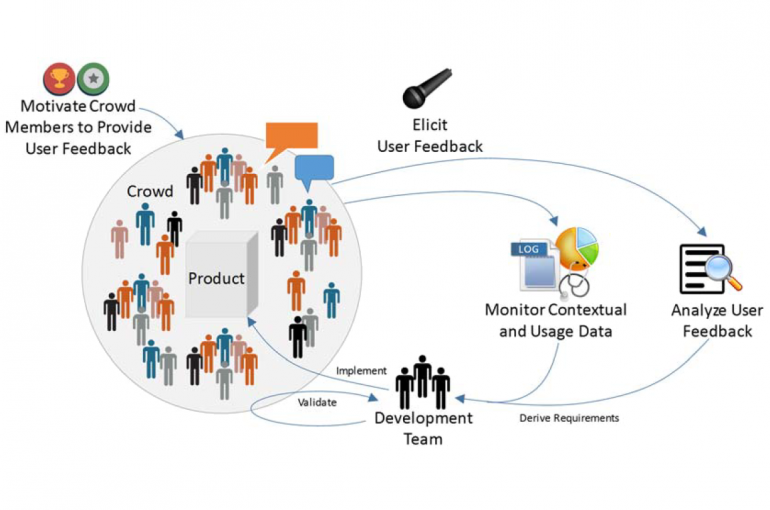Power to the people: can a crowd of users improve software through their feedback? Dutch-German research cooperation on crowd-based requirements engineering
Can a crowd of users contribute to the development and improvement of software through their feedback? This is the central question of a collaboration between the Department of Information and Computing Sciences of Utrecht University and the Fraunhofer Institute for Experimental Software Engineering IESE in Germany. The project is highly interdisciplinary, for it combines computer science techniques like natural language processing with theories from social sciences and psychology.
Crowd-based Requirements Engineering, or CrowdRE, is a novel research direction that studies how a crowd of users can contribute with feedback on product improvements and new requirements, and influence the way a software system evolves over time. The team from Utrecht and Fraunhofer have presented their vision of CrowdRE in a publication in IEEE Software, the first joint work by the requirements engineering research teams.
From collaboration to PhD research
Based on the joint work, Sjaak Brinkkemper and Fabiano Dalpiaz (Utrecht University) and Joerg Doerr and Eduard C. Groen (Fraunhofer IESE) have recently initiated a PhD project that has Eddy Groen as PhD candidate. Groen will investigate various questions within CrowdRE: how can we obtain high-quality requirements from a crowd of (inexperienced) users? How can we cope with the quantity of feedback? What is needed to support different voices and account not only for the most wanted features, but also for minorities? And how can we address the difficult trade-off between the work by human analysts (expensive) and algorithms (inherently inaccurate)?
Complementary expertise
The research teams from the two institutes unite forces to share each other’s expertise. Fraunhofer IESE will benefit from Utrecht’s research on the use of artificial intelligence techniques to support requirements engineering activities, while Utrecht University will profit from Fraunhofer’s connections with certain types of companies, like those in the automotive domain. This project is an early example of what could be a new model for conducting innovative research that combines the expertise of different institutions based on each other’s skills and talents, rather than focusing on projects that are within the researchers’ comfort zone or geographical proximity.
Requirements Engineering Lab at Utrecht University
The Requirements Engineering Lab (RE-Lab) at Utrecht University conducts research that aims to help people express better requirements in order to ultimately deliver better software. The researchers from RE-Lab combine innovative techniques from various disciplines (artificial intelligence, computational linguistics, social sciences, etc.) and to apply them to solve real-world problems in the software industry.
Fraunhofer IESE
The Fraunhofer Institute for Experimental Software Engineering IESE in Kaiserslautern has been one of the world’s leading research institutes in the area of software and systems engineering for more than 20 years. Fraunhofer IESE is one of 72 institutes and research units of the Fraunhofer-Gesellschaft. Together they have a major impact on shaping applied research in Europe and contribute to Germany’s competitiveness in international markets.

